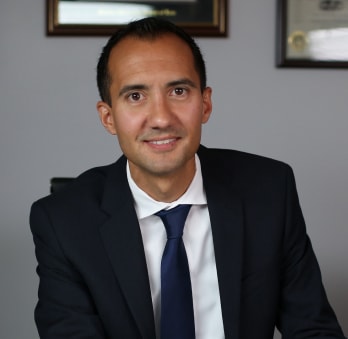WHETHER YOU NEED A ST. PAUL CRIMINAL DEFENSE LAWYER FOLLOWING A RECENT ARREST MAY DEPEND ON THE CIRCUMSTANCES OF THE POLICE ENCOUNTER.

Minnesota police officers have a limited right to approach a stopped vehicle in public. An officer does not seize a driver under the law if the officer approaches an already stopped vehicle and simply asks the driver for his name or looks through the car windows.
As long as the driver and any passengers are still free to leave and the officer does not prevent anyone from leaving, then there is no unlawful seizure. The police officer has as much of a right to be in public places as the rest of us and is free to speak to whoever he wants to or to look through a vehicle’s windows.
However, a police officer may not approach a stopped vehicle and ask the driver for a driver’s license or ask the driver to step out of the vehicle without a reasonable belief that the vehicle, driver or a passenger was involved in criminal activity.
As a general rule, a driver may be seized for Fourth Amendment purposes when a police officer asks for a driver’s license if, under the circumstances, the driver would not feel free to leave or otherwise ignore the officer’s request.
Finally, police officers can approach a stopped vehicle to conduct a “welfare check“ to make sure the driver and any passengers do not need medical assistance. This usually arises in Minnesota DWI cases where an officer observes a driver slumped over the steering wheel and does not respond to the officer knocking on the window.
In these situations, the officer can lawfully open the vehicle’s door or knock out a window to check on the driver’s safety. If the officer then has a reason to believe the driver is intoxicated, the officer can lawfully arrest the driver and the driver will then face a Minnesota DWI charge.
THESE ARE GENERAL RULES AND THERE ARE ALWAYS EXCEPTIONS TO THE RULE.
Different factors can change a lawful police encounter into an unlawful seizure. In many cases, police officers will use these observations or interactions in an attempt to develop reasonable suspicion of criminal activity which would give the officer the right to expand the initial observation into a more intrusive stop and/or search.
If an officer approaches your vehicle in public for whatever reason and begins to ask you questions, you are under no obligation to answer anything. Ask the police officer if you are being detained, and, if not, simply tell the officer you are not going to answer any questions.
CONTACT US
If you or someone you know was recently arrested, be sure to contact a St. Paul criminal defense lawyer at Arechigo & Stokka today.



